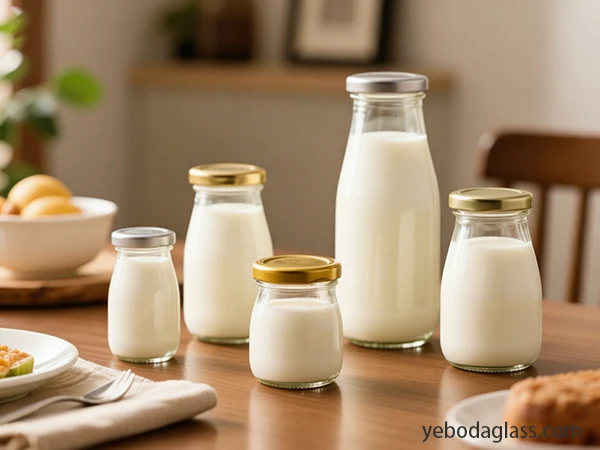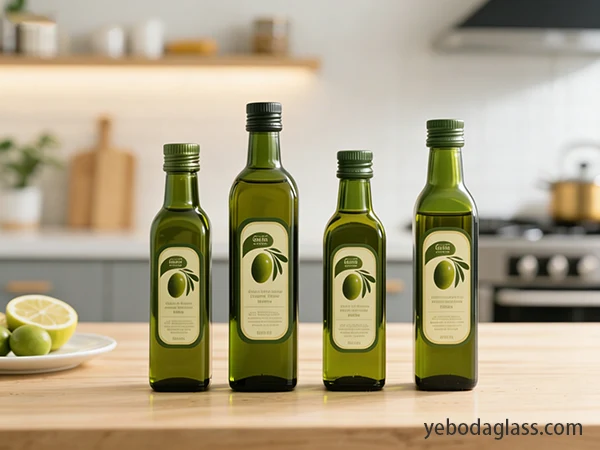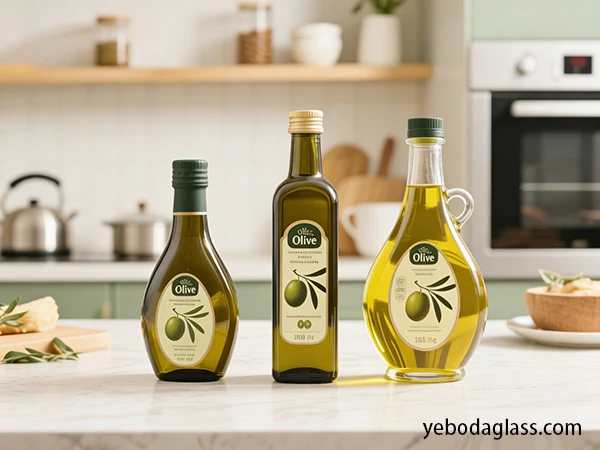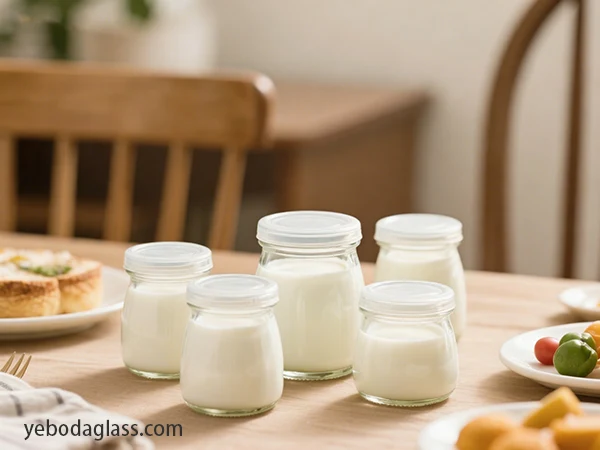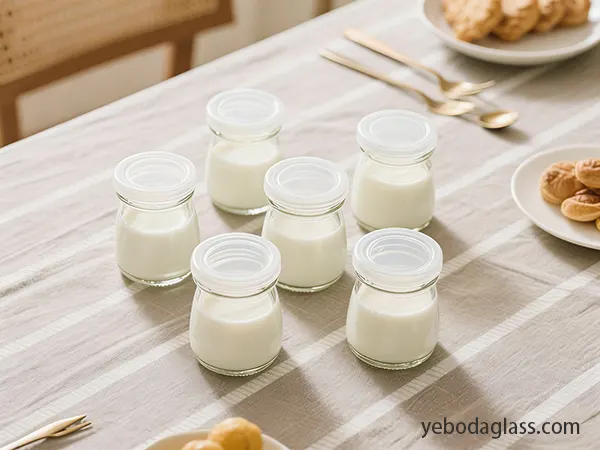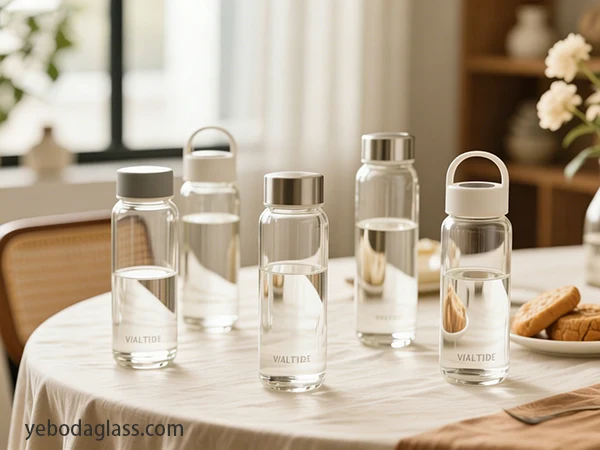Introducción
Global dispensador de aceite de cocina El mercado está listo para un crecimiento y desarrollo significativos en 2025, inspirado por la confluencia de factores como las instalaciones de cocina, la higiene y la atención del consumidor a una cocina saludable. El progreso tecnológico, especialmente en soluciones de dispensación inteligentes y automatizadas, está listo para adaptarse a los productos y al consumidor. La estabilidad se perfila como un factor clave; el material influye en las opciones y el diseño del producto, lo que impulsa a los consumidores a buscar rápidamente opciones ecológicas y rellenables. El dispensador de aceite de cocina... Yeboda La combinación de vidrio de borosilicato duradero con una boquilla antigoteo precisa garantiza higiene y un uso a largo plazo. Sus diseños combinan funcionalidad saludable con estética moderna, lo que los hace ideales tanto para hogares como para cocinas profesionales. El mercado se caracteriza por una concentración moderada, con empresas establecidas y marcas emergentes que buscan cuota de mercado mediante la innovación en características, materiales y canales de distribución. Las principales oportunidades residen en la expansión de la tecnología inteligente, las prácticas permanentes y la presencia en el comercio electrónico. Sin embargo, es necesario abordar los costos de producción de materiales ecológicos, los intervalos de conocimiento del consumidor en algunas áreas y la estabilidad del producto (especialmente en el caso de los dispensadores de vidrio).
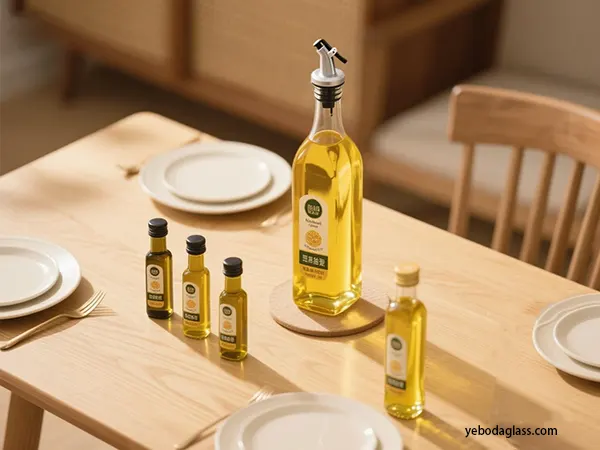
Segmentación del mercado y enfoque geográfico
Se espera que el mercado global de dispensadores de aceite, con un valor aproximado de 1.890 millones de dólares en 2024, alcance los 3.040 millones de dólares en 2033, con una tasa de crecimiento anual combinada del 5,4 % entre 2025 y 2033 (4,98 % del PIB). Un nuevo lanzamiento mantiene el mercado en 2.180 millones de dólares en 2023, con una tasa de crecimiento anual compuesta (TCAC) del 5,17 % para 2029, alcanzando los 2.940 millones de dólares en 2029.
Tendencias geográficas
- Asia-Pacífico: Esta región es una potencia importante, con la mayor cuota de mercado en 2024. Su crecimiento se debe a la rápida urbanización, el aumento de la renta disponible y el aumento de la oferta de equipos de cocina modernos en países como China, India, Japón y Corea del Sur. Se prevé que el mercado de dispensadores de aceite de Asia-Pacífico registre una sólida tasa de crecimiento anual compuesta (TCAC) del 6,2 % entre 2025 y 2033.
- América del norte: Considerando la segunda mayor cuota de mercado, el mercado norteamericano se centra en la innovación en la cocina, el comportamiento saludable del consumidor y la popularidad de la cocina gourmet. Se prevé que el mercado norteamericano de dispensadores de aceite mantenga un crecimiento constante con una tasa de crecimiento anual compuesta (TCAC) estimada del 4,8 % hasta 2033.
- Europa: Europa representa un mercado importante, respaldado por una sólida tradición pakistaní, altos estándares de seguridad alimentaria y un creciente énfasis en la estabilidad. Se estima que la región experimentará un crecimiento anual compuesto (CAGR) del 5,4 % entre 2024 y 2030, el más rápido, debido a la gran afición de los consumidores por los productos respetuosos con el medio ambiente.
Segmentación por aplicación
El mercado se divide por aplicación, incluyendo cocinas domésticas, restaurantes, procesamiento de alimentos, comercio minorista y artículos de regalo. El sector residencial se ve particularmente afectado por las tendencias en cocina casera y soluciones de cocina prácticas y saludables.
Tipo de producto
- Dispensador manual: Actualmente dominan el mercado debido a su resistencia y facilidad de uso.
- Dispensador automático e inteligente: Se espera que su adopción se amplíe a medida que los consumidores se vuelvan más aficionados a la tecnología y expandan el ecosistema de hogares inteligentes. Se estima que el segmento de petróleo inteligente aumentará su CAGR, con la tasa de crecimiento anual compuesta (CAGR) más rápida, un 11,2 % entre 2024 y 2030.
- Dispensador de aceite en aerosol: Estas piezas precisas están ganando popularidad entre los consumidores preocupados por la salud que buscan control.
Barattoli Mason da 32 once all'ingrosso con design cilindrico
- Botellas de vidrio Il nostro barattolo di vetro da 32 once ha un classico design cilindrico in vetro trasparente e resistente. Questi barattoli di grande capacità sono perfetti per conservare marmellate, sottaceti, salse o altri prodotti fatti in casa. L'apertura dettagliata consente un facile riempimento e pulizia, rendendoli ideali per le cucine domestiche, la protezione degli alimenti o l'uso professionale.Los dispensadores de aceite de vidrio son populares por su claridad, estética, estabilidad y ausencia de reactividad, lo que garantiza la pureza del aceite. Las botellas de vidrio para dispensadores de aceite experimentaron importantes picos de descubrimiento en septiembre de 2025 y noviembre de 2024.
- Questo barattolo da 32 once è ideale per conservare grandi quantità di marmellate, sottaceti, salse o bevande fatte in casa. È facile da riempire, pulire e riutilizzare. Perfetti per piccoli produttori alimentari, negozi di articoli per animali o confezioni regalo. Barattoli di vetro di grande capacità che migliorano la presentazione del prodotto mantenendo il materiale fresco e sicuro.
- Otros ingredientes: También se utilizan plástico (libre de BPA) y cerámica, donde el dispensador de cerámica gana terreno entre los consumidores virtuosos.
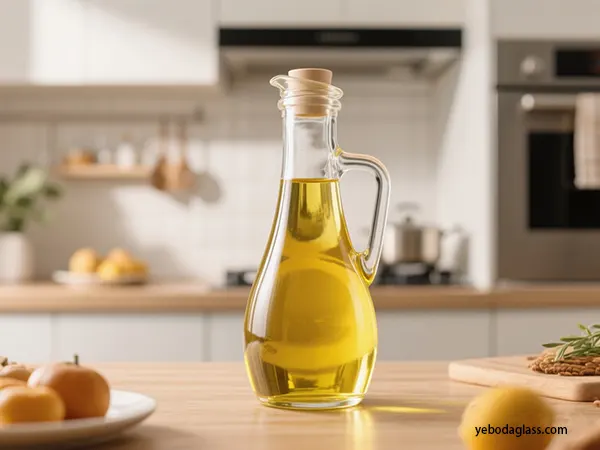
Terrible
- Desconectado: Actualmente, el segmento offline está impulsado por la experiencia de compra táctil y la confianza del consumidor en las tiendas minoristas.
- En líneaSe estima que el combustible aumentará a la CAGR más rápida gracias a la expansión de las plataformas de comercio electrónico del segmento en línea.
Innovación tecnológica y desarrollo de productos
El mercado de dispensadores de aceite de cocina está experimentando un aumento en la innovación tecnológica, impulsada por la demanda de mayor facilidad, precisión y beneficios para la salud. Este progreso no solo mejora la experiencia del usuario, sino que también crea nuevos segmentos de mercado y oportunidades de desarrollo.
Dispensador inteligente y conectado
La integración de tecnología inteligente, como la conectividad IoT y el control mediante aplicaciones, es una tendencia importante. Están surgiendo dispensadores de aceite inteligentes que pueden rastrear el uso del aceite, proporcionar información nutricional y ofrecer un control preciso de las piezas mediante aplicaciones conectadas.
Mecanismos de vertido y pulverización de precisión
Los consumidores exigen rápidamente una proporción controlada de aceite y aderezo para una cocina saludable. Esto ha inspirado el desarrollo del dispensador con mecanismos de inserción especiales, como boquillas antigoteo, válvulas de flujo controlado y marcas de medición precisas. El dispensador de aceite en aerosol también está ganando terreno, ofreciendo un chorro estable para una fina niebla o para aplicaciones culinarias versátiles.
Funciones automatizadas
Más allá de la conectividad inteligente, la automatización también está impactando el diseño de productos. Los dispensadores programables y basados en sensores permiten la dispensación sin intervención, reducen el error humano y mejoran la higiene.
Progreso de la ciencia de los materiales
Si bien el vidrio sigue siendo un material fundamental por su belleza y durabilidad, existe un creciente interés en materiales más duraderos y funcionales. El acero inoxidable está ganando popularidad por su resistencia y capacidad para proteger el aceite de la luz. La innovación en la ciencia de los materiales también se basa en el uso de plásticos avanzados (libres de BPA) y cerámica, que satisfacen las diversas preferencias de los consumidores y ofrecen estabilidad. Esta tendencia también se orienta al uso de materiales reciclados y de origen biológico en el mercado, en consonancia con un amplio movimiento en materia de estabilidad. Por ejemplo, el dispensador de aceite de vidrio de borosilicato ofrece alta durabilidad y resistencia térmica en comparación con el vidrio de soda-leam tradicional, mientras que el plástico de origen biológico ofrece una opción renovable con bajo impacto ambiental.
Conceptos emergentes
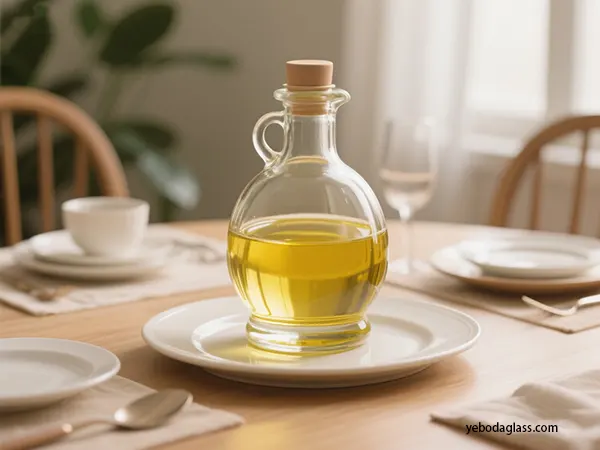
Más allá de 2025, los conceptos de apuestas y futuro están surgiendo en el mercado de dispensadores de aceite de cocina.
- Se están probando materiales con aplicaciones de ciencia de materiales avanzadas, como superficies autolimpiables o mayor seguridad UV.
- La integración de la IA también puede convertirse en una realidad en el futuro mediante el análisis del uso del petróleo y el pago automático.
- Centrándose en la estabilidad se impulsará el desarrollo de un dispensador hecho de materiales biodegradables o compostables, posiblemente incluyendo sistemas de recarga de circuito cerrado para una eficiencia ambiental a largo plazo.
Se espera que estas innovaciones sean adoptadas gradualmente por los consumidores de la industria de dispensadores de aceite de cocina y redefinan las categorías premium.
Factores que impulsan la estabilidad y el comportamiento del consumidor
La estabilidad ya no es una preocupación exclusiva, sino que el dispensador de aceite de cocina es un factor clave en las decisiones de compra de los consumidores. A medida que aumenta la conciencia ambiental, los consumidores buscan activamente productos que se ajusten a sus valores ecológicos.
Materiales y diseño ecológicos
Los materiales reciclados representan una clara transición hacia los utensilios de bambú, corcho y recubrimientos no tóxicos. Los consumidores prefieren botellas de plástico de rápido reciclaje o de origen biológico, con un embalaje mínimo. El vidrio sigue siendo una opción popular por su estabilidad y su naturaleza no reactiva, lo que garantiza la pureza del aceite. Los dispensadores de acero inoxidable también tienen una creciente demanda debido a su durabilidad y apariencia premium.
Sistema rellenable y deficiencia de residuos
Los envases de recarga se están consolidando como una alternativa ecológica a los envases de un solo uso, ideal para hogares y empresas que buscan soluciones rentables y duraderas. El concepto de economía circular, que prioriza la durabilidad, la reparación y el reciclaje, está cobrando impulso. Las marcas buscan bolsas flexibles de recarga y reciclaje tipo bag-in-box para reducir los residuos.
El deseo del consumidor de pagar una prima
Cada vez más consumidores están dispuestos a pagar más por soluciones respetuosas con el medio ambiente. Esto representa una oportunidad para las marcas que pueden comunicar claramente sus credenciales de estabilidad. Los certificados, el etiquetado ecológico y la transparencia en el abastecimiento contribuyen a generar confianza y a ofrecer precios premium óptimos.
Efecto de los Reglamentos
Los cambios regulatorios están intensificando las prácticas permanentes. Por ejemplo:
- Desde 2025, la prohibición en Francia de los envases de plástico para alimentos ha obligado a las empresas a optar por opciones de desecho o reutilizables.
- Las nuevas normas de la Unión Europea sobre materiales en contacto con alimentos (FCMS) aplican estrictos estándares de pureza tanto para el plástico virgen como para el reciclado, lo que genera mayores obligaciones de trazabilidad y etiquetado.
Estas políticas fomentan la innovación, garantizando que los dispensadores cumplan con los estándares de seguridad que respaldan un mercado verde.
Comportamiento y prioridades del consumidor
Más allá de las opciones de materiales, el comportamiento del consumidor se ve influenciado por el deseo de comodidad, salud y estética. El aumento de cocinar en casa ha incrementado la demanda de utensilios de cocina fáciles de usar y de alta calidad. Los dispensadores inteligentes con conectividad a aplicaciones y control de piezas son especialmente atractivos para los compradores preocupados por su salud. Las reseñas en línea influyen considerablemente en las decisiones de compra, ya que los consumidores confían rápidamente en las recomendaciones de sus colegas y esperan que las empresas respondan activamente a ellas.
Oportunidades de mercado
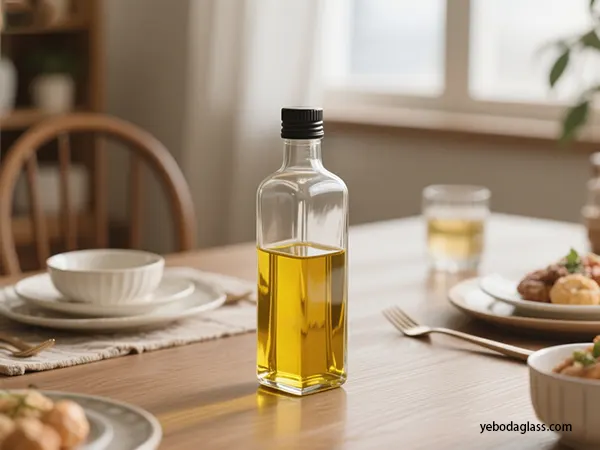
En 2025, la exposición de aceite de cocina presenta varias oportunidades para los actores del mercado, inspiradas en el desarrollo de las preferencias de los consumidores, el progreso tecnológico y la estabilidad.
Las ocasiones más importantes incluyen:
- Entrada al mercado de dispensadores inteligentes: dispensadores habilitados para IoT e integrados con aplicaciones con funciones como seguimiento de la nutrición y control preciso.
- Producto sostenible: material purificado, diseño rellenable y plástico de origen biológico.
- Modelos de recarga basados en canales de comercio electrónico y DTC, compras online personales y acceso global.
- Dispensador en aerosol con control de calorías y sistema de control de piezas para cocinar de Health and Kalyan.
- Atractivo estético e integración en la cocina: acabado premium y diseño adaptable para adaptarse a cocinas modernas.
- Purificación y funcionalidad: vidrio de borosilicato, acero inoxidable y mecanismos de rociado confiables para abordar problemas delicados.
Recomendaciones estratégicas
Para navegar con éxito en el mercado desarrollado, los fabricantes y las marcas deben hacer:
- Invierta en la integración de tecnología inteligente: Aumente el dispensador de aceite de cocina con funciones basadas en IoT, IA y aplicaciones que brindan beneficios al consumidor promedio.
- Adopte un diseño sostenible: Adoptar vidrio reciclado, plástico de origen biológico y acero inoxidable, promoviendo el sistema de recarga y los principios de la economía circular.
- Fortalecer la presencia del comercio electrónico: Construir plataformas DTC sólidas, que estén respaldadas por membresías y materiales detallados de productos.
- Mejorar la durabilidad del producto: Utilice contenido premium y aplique pruebas de calidad estrictas para eliminar problemas delicados y de rendimiento.
- Educar a los consumidores: Arrojar luz sobre los beneficios para la salud, la conveniencia y la estabilidad en las campañas de marketing, especialmente en áreas con tasas de adopción lentas.
- Aproveche el análisis de datos: Utilice la información obtenida de los dispositivos y del comportamiento de compra en línea para perfeccionar el desarrollo de productos y la promoción personal.
- Ampliar aplicaciones B2B: Soluciones de gestión automática de aceite dirigidas a restaurantes, empresas de catering y procesamiento de alimentos que reducen costes y desperdicios.
Conclusión
El mercado mundial de dispensadores de aceite de cocina entrará en una fase de transformación en 2025, impulsada por la tecnología, la estabilidad y la innovación impulsada por el consumidor. Si bien persisten desafíos como el costo de las características ecológicas y la durabilidad, la convergencia de las características inteligentes, el diseño sostenible y la adaptación al comportamiento del consumidor ofrecen abundantes oportunidades. Las marcas que equilibran la funcionalidad, las prácticas respetuosas con el medio ambiente y la innovación digital, como el preciso dispensador de vidrio de Yeboda, serán las más eficaces para captar valor a largo plazo y generar confianza entre los compradores, tanto residenciales como comerciales.

